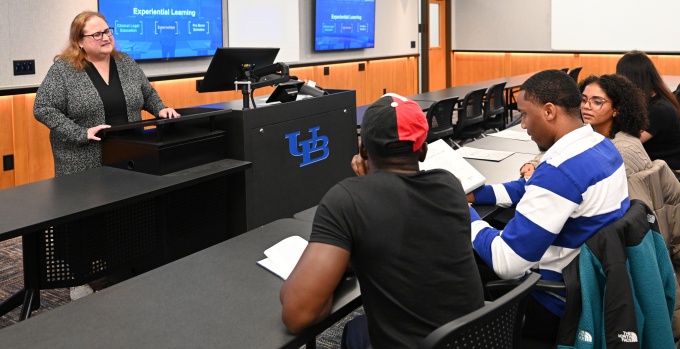
Undergraduate BA and Minor in Law
The changing market for legal services is fueling the growth of new law-related career possibilities. Many of these careers do not require the skills of a licensed attorney, but they do demand a sound understanding of the law.
Why a degree in Law?
People in a wide range of careers encounter legal issues on a regular basis. By gaining an understanding of the basic functional areas of law, you will have a competitive advantage in the marketplace, wherever your career takes you.
- Human resource professionals routinely encounter issues regarding employment, labor, and contract law.
- Bankers and financiers often deal with matters involving tax, corporate law, securities, privacy law, and intellectual property.
- Executives and administrators in creative industries encounter contract law and intellectual property issues.
- Government employees may be responsible for implementing or complying with administrative regulations or constitutional limitations.
These and other professionals may not be required to practice in a court of law, but having some familiarity with the law will help them understand the legal requirements imposed upon them and how best to work with legal professionals when the need arises.
UB Resources
Academic Advising
Melinda Saran
Interim Vice Dean for Undergraduate Studies,
Vice Dean for Undergraduate Student Affairs
saran@buffalo.edu
716-645-6603
---------
Julie Jones
Undergraduate Law Program Advisor and Coordinator
jajones3@buffalo.edu
716-645-7892
The BA in Law is intended to prepare students for these careers. For example, compliance specialists work in corporations of all kinds to ensure that organizations comply with the laws of intellectual property and privacy, and human resources managers need to understand employment law and benefits rules.
At the same time, the professional practice of law continues to become more and more complex. Whole new careers have developed to support the work lawyers do. E-discovery and litigation support professionals apply technical expertise to manage the massive volume of electronically stored information required in all kinds of litigation. Trial and jury consultants combine technical expertise with a practical knowledge of psychology and sociology to help lawyers communicate complex concepts to juries.
- Program requirements can be found in UB’s Undergraduate Degree & Course Catalog.
- Visit the Law academic program page for more information about the academic experience, who you will learn from, opportunities outside of class and what you can do with this degree.